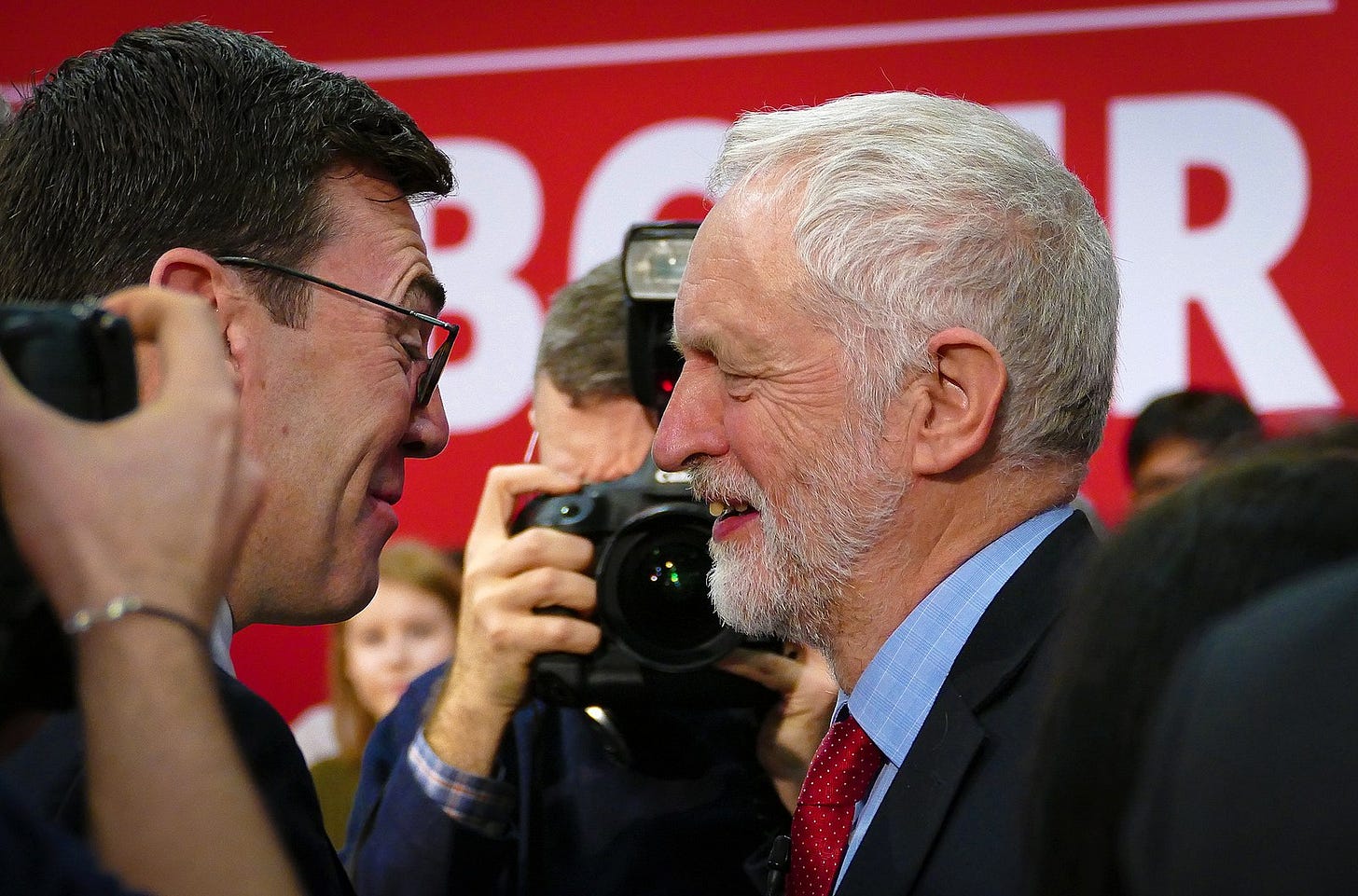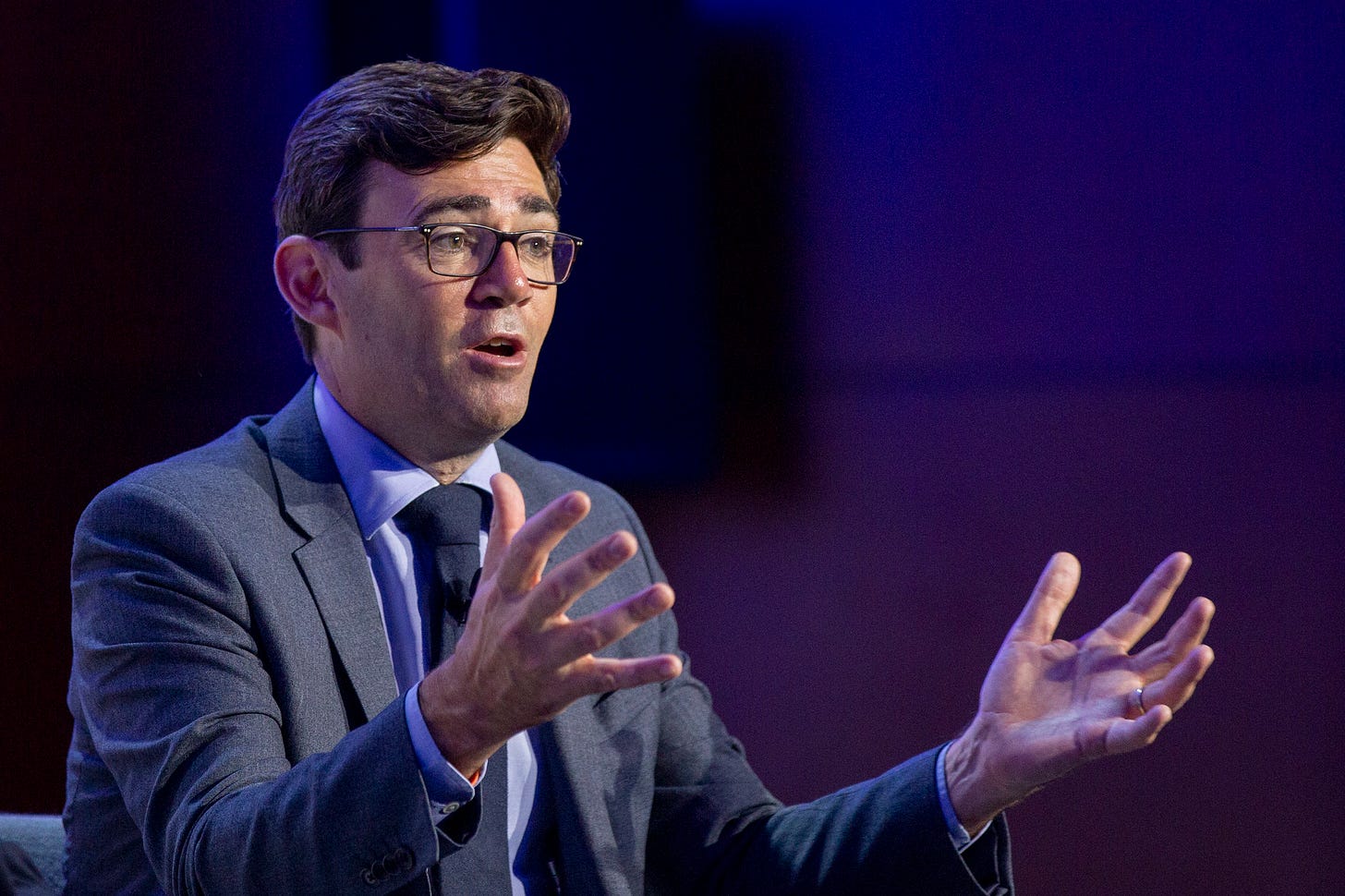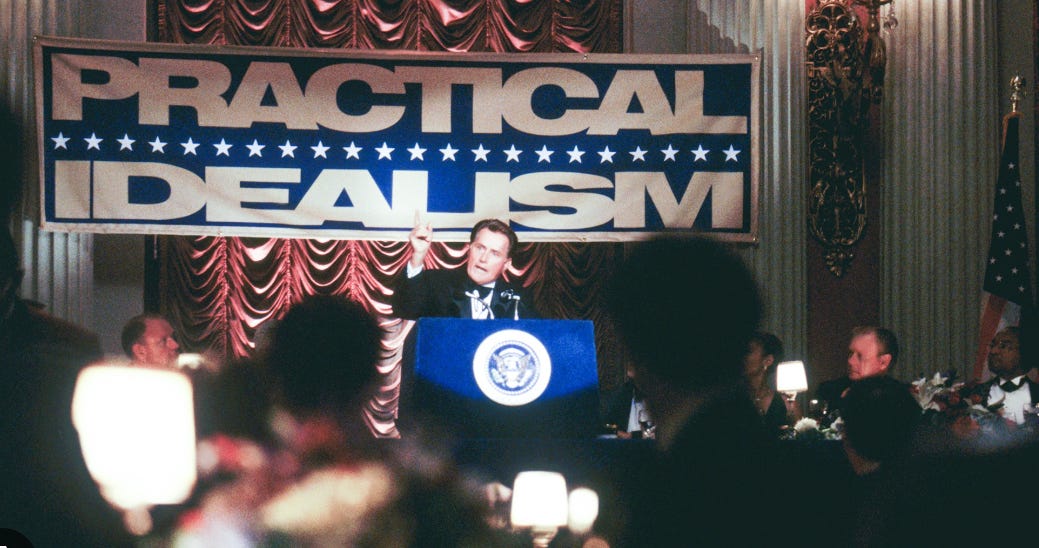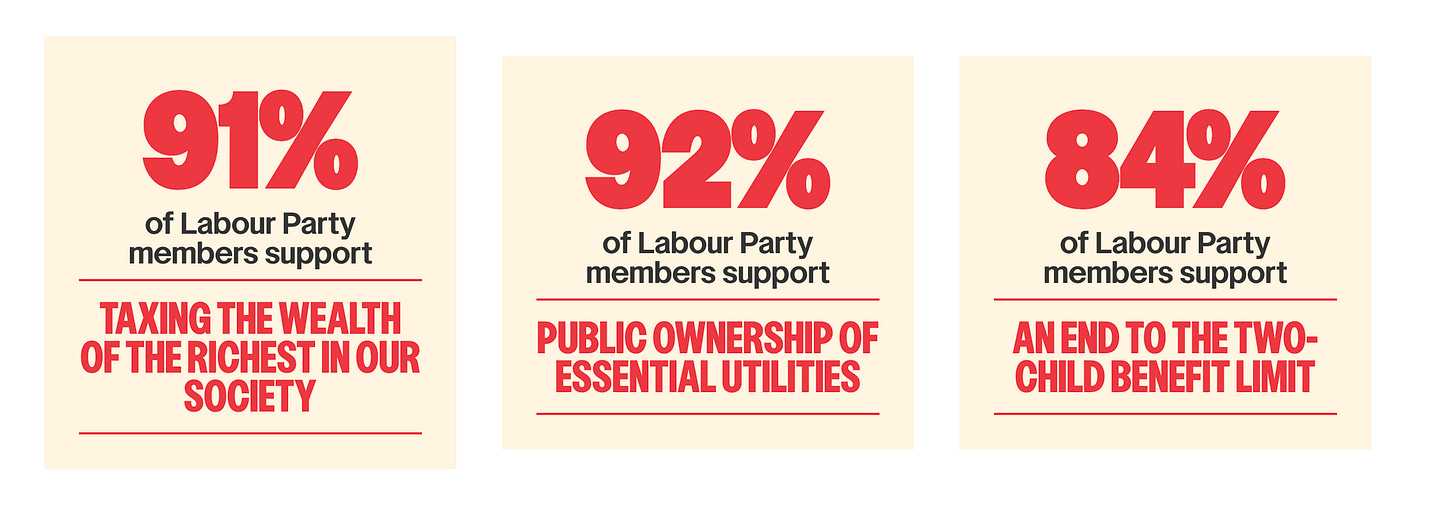Andy Burnham is extremely available
Perpetually running for Labour leader, the Mayor of Greater Manchester just wants you to know: he's still keen
Space is ancient and vast. Scientists estimate the observable universe to be about 13.8 billion years old and roughly 92 billion light-years across. How is that possible? The speed of light may limit how fast, well, light travels, but space itself has been expanding since the Big Bang and that expansion is in fact accelerating, driven by a mysterious force we don’t entirely understand but have at least given a cool name: dark energy.
Oh, and one more thing. We don’t actually know if the universe is finite or infinite. Which inevitably leads to some further questions. If the universe is finite, does that mean there’s a defined edge? Or if it’s truly infinite, forget what shape that might be, doesn’t that mean there would be… infinite possibilities?
Think about it for a moment. In an infinite universe, all events have a non-zero probability of occurring an infinite number of times. We are literally talking infinite-number-of-monkeys-typing-on-infinite-typewriters-and-eventually-one-of-them-smashing-out-the-complete-works-of-William-Shakespeare.
If this is right, it leads to some unsettling consequences at a human level. It would mean there are infinite versions of you out there. I don’t mean this euphemistically, but on a molecular level. And if these — are we calling them ‘clones’ — people share every atom, surely that makes them… you?
Professor David Kipping, who is widely known for his research of extrasolar planets and exomoons (and for wearing alarmingly tight-fitting shirts on camera), puts it in this rather beautiful way:
You are everywhere. And you never end. Despite the existential crisis this carries, it perhaps provides some relief in other ways. For our close loved ones that we’ve lost continue to live somewhere. Both offset in time, but also through different choices. An infinite number of loved doppelgängers who didn’t get in the car that day, who decided not to take those terrible drugs, who got to hospital in time. Still out there, somewhere, just preposterously distant.
So, somewhere in the aether, Julius Caesar survived his assassination attempt, Paul Gascoigne got his foot to the ball against the Germans in Euro ‘96 and Peter Mandelson has only had to resign twice from government.
Yet here’s the kicker. Even in an infinite universe with its infinite possibilities, I still struggle to imagine a world in which Andy Burnham leads the Labour Party.
“Unite, or bye”
Burnham has officially run for the position only twice. Both times, he pitched himself as the “unity candidate”. In 2010, that meant being neither Blairite nor Brownite (Burnham served under both Labour prime ministers), but still, in his words, “tough on crime, pro-business, pro-wealth creation, pro-aspiration” as well as a holding a hard line on immigration. He finished fourth, ahead only of Diane Abbott, on 8.7% of the vote, having run what some considered to be a fairly ropey campaign.
By 2015 and following a second successive Labour defeat, Burnham began the contest as the bookies’ favourite. His pitch had shifted leftward somewhat: he now favoured restoring the 50p tax rate, re-nationalisation of the railways while he opposing the nascent EU-US trade deal. But for some colleagues’ decision to lend Jeremy Corbyn their vote, Burnham would likely have emerged as the winner.
Instead, he spent 12 unhappy months as shadow home secretary before running to be Mayor of Greater Manchester, from which he has cemented his position as ‘King of the North’, bolstered by his public opposition to Boris Johnson’s handling of the Covid-19 pandemic (it had to do with more money and those lockdown tiers but frankly, we’ve all memory-holed the period and for good reason.)
Despite leaving parliament, Burnham has never hidden his desire to lead Labour. In fact, he has long been regarded as the prince across the water, particularly when things look bleak for the incumbent. Following his landslide re-election victory as mayor in May 2021, he said the party should "get in touch" if it were "ever to feel it needed me". In August 2022, he admitted he would consider another run for leader “one day” if it was “something people would support”. There are many other examples.
This is not, by the way, a dig. Burnham has been refreshingly open about this. And as Tony Blair often said of Gordon Brown’s frequent attempts to depose him, an ambition to be prime minister is not ignoble. At the same time, Burnham has carefully cultivated his reputation as a decent northern bloke who just so happens to always find himself, ideologically speaking, at the centre of the Labour Party and broadly in line with members, whether on economic or foreign policy.
The “how” question
Let’s for a moment overlook the minor obstacle that there is no vacancy at the top of the party. How does Burnham plan to execute this life-long ambition? Boris Johnson managed the gambit. The then Mayor of London found the then safe Tory seat of Uxbridge and South Ruislip and triumphantly returned to Westminster. But there’s a problem. Police and Crime Commissioners (PCCs) cannot also be MPs. And while London’s mayor is technically not a PCC, Greater Manchester’s mayor is.
Then there’s the issue of the safe Labour seat Burnham will need. Is there such a thing in the current political environment? And if there’s a by-election, is the National Executive Committee, on which Keir Starmer commands a majority, going to rubber stamp a Burnham candidacy? Sure, they’d look bad if they didn’t but this is politics, not tennis camp.
Alternatively, they could let him run on the basis that he’d lose and his political career would be effectively over. Or give him more powers as mayor in a devolution-as-bribe settlement.
Still, there are reasons for optimism too. One seat in the Greater Manchester area that might soon become available is that held by Andrew Gwynne, who was sacked as a minister and lost the Labour whip following a scandal involving comments he made in a WhatsApp group. Gwynne held his Gorton and Denton constituency with a majority of 13,400 at the last election. Meanwhile, Burnham ally and neighbour Lucy Powell may be deputy leader by the end of October.
The “why” question
Burnham is back in the news following the launch of a new Labour pressure group, Mainstream. The organisation calls itself the home for Labour’s “radical realists” which, even by the standards of UK political messaging, is pretty weak. I know references to The West Wing in 2025 are beyond cringe, but all I can think of is this.
Head to its website and you’ll see the sort of soft-left Labour fare below. And yet, again, all I can think is: why is the first box larger than the other two? Couldn’t they have shrunk the font or something? Of course, the salient point is the extent to which this is a vehicle for first Powell, and then Burnham to lead the party.
Burnham told The Guardian:
“We’ve got to get beyond this culture where everything’s a threat. If people are speaking out, it can actually be an opportunity to make changes.”
And he has a point. Starmer’s party management seems to have only two gears: do nothing or deprive internal opponents of the whip. Neither extreme appears to be up to much. Meanwhile, I struggle to see how the Starmer-Reeves axis can credibly please the bond markets and fix the public services without raising the broad-based taxes they ruled out during the election campaign. Perhaps if Labour members think the next election is lost, they’d just as well prefer to be led by someone who appears to love them back.
Why that person still wouldn’t be Angela Rayner remains unclear. But for now, Burnham is doing what he does best: positioning himself for a tilt at the leadership. Finite or infinite, in this universe, Burnham is perpetually running.







Nice one! However, I have to confess I don’t support the “infinity” notion in quantum physics. It’s guesswork, and used to be an interesting topic for around a table in the pub, if there wasn’t much else in the news.
Whilst I don’t necessarily dispute the notion of infinity, I fail to recognise why an infinite universe might expect to produce infinite copies of Hamlet from infinite monkeys. Nor the notion that there are infinite exact copies of you and I.
Just because something is technically possible, doesn’t make it a “given” that it will happen! That’s my view. 🙂
Thanks again for your interesting and engaging views! Cheers, Rich.
Quite a preamble!
The apparent contradiction between the age of the universe and its size has always bothered me—exactly as you have described it. If the speed of light is a universal limit, how can the universe have expanded at a faster rate? I'm not sure that even Stephen Hawking managed to explain that in a way that I could understand.
As for Andy Burnham—it would be fascinating to see how he managed the role of PM. I for one would love him to have a go.
As for West Wing references: there are three writers whom it will never be cringe to quote—Shakespeare, Stoppard, and Sorkin.
Your best post yet.